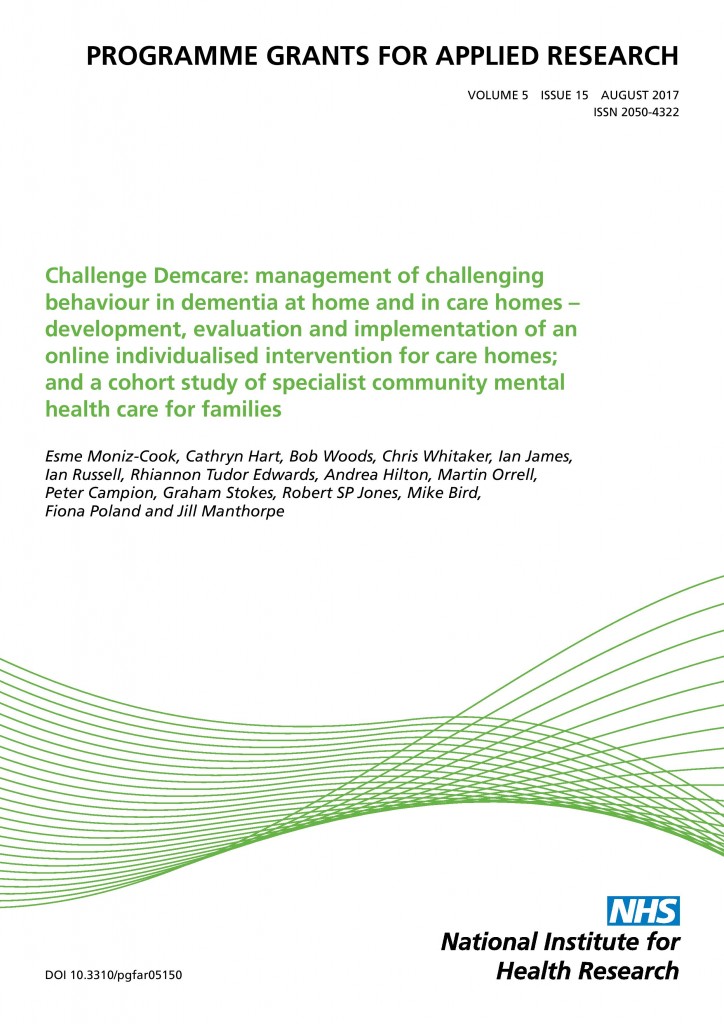Esme Moniz-Cook and Jill Manthorpe summarise the findings from a study on the management of dementia. (609 words)
- Help for family carers supporting people with dementia who are distressed is much needed but services struggle to provide effective responses
- Both families and care home staff need more support to help them to care for people with dementia – especially when the ‘going gets tough’
 The findings from a large research study on the Management of Dementia with clinically significant challenging behaviour at home and in care homes led by the University of Hull and Humber NHS FT are published today (11 August 2017). The research was funded by the National Institute for Health Research (NIHR), Programme Grants for Applied Research (PGfAR). The study examined the records of over 5,300 older people and their families who were referred for specialist help to NHS mental health services across England. Nearly two thirds (61%) of those with dementia and distressing behaviour had a mild dementia rather than severe dementia. Practitioners did not always recognise that people at this stage were experiencing problems such as agitation, aggression and distress; and over a six month period, they did not manage to reduce the difficulties faced by these families. Families bore most of the care costs, and many were untouched by the evidence, guidelines and scope that services should provide them with timely individually-tailored effective responses to their challenging circumstances. Continue reading
The findings from a large research study on the Management of Dementia with clinically significant challenging behaviour at home and in care homes led by the University of Hull and Humber NHS FT are published today (11 August 2017). The research was funded by the National Institute for Health Research (NIHR), Programme Grants for Applied Research (PGfAR). The study examined the records of over 5,300 older people and their families who were referred for specialist help to NHS mental health services across England. Nearly two thirds (61%) of those with dementia and distressing behaviour had a mild dementia rather than severe dementia. Practitioners did not always recognise that people at this stage were experiencing problems such as agitation, aggression and distress; and over a six month period, they did not manage to reduce the difficulties faced by these families. Families bore most of the care costs, and many were untouched by the evidence, guidelines and scope that services should provide them with timely individually-tailored effective responses to their challenging circumstances. Continue reading